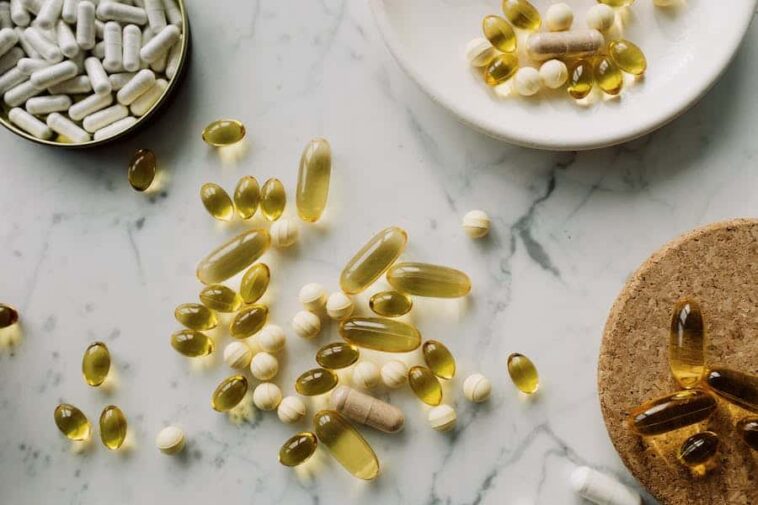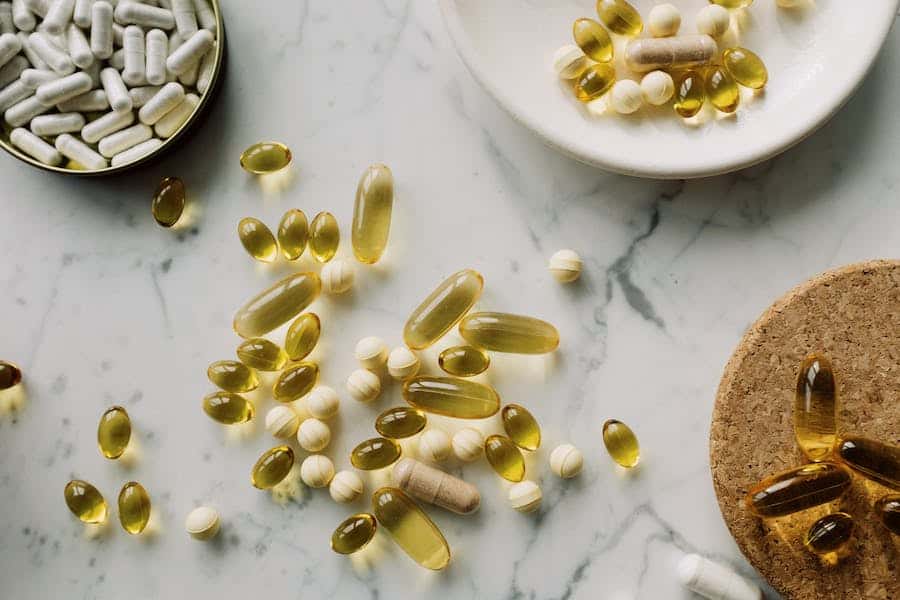Achieving hormonal balance is essential for overall well-being, affecting various aspects of health, including mood, energy levels, and metabolism. Hormone support supplements, such as Performer 8, have gained popularity as a natural way to address imbalances and promote harmony within the body. In this comprehensive guide, we explore the significance of hormonal balance, common causes of imbalance, and the role of hormone support supplements in supporting a healthier, more balanced life.
Understanding the Importance of Hormonal Balance
Hormones act as messengers in the body, regulating many physiological processes. From growth and metabolism to mood and reproductive functions, hormones are crucial in maintaining homeostasis. Achieving and maintaining hormonal balance is vital for optimal health and well-being.
- Endocrine System Overview: The endocrine system, consisting of glands that produce hormones, regulates various bodily functions. These hormones travel through the bloodstream as chemical messengers that signal cells to perform specific tasks.
- Essential Hormones and Their Functions: Hormones such as estrogen, progesterone, testosterone, thyroid hormones, and cortisol play distinct roles in the body. Imbalances in these hormones can lead to various symptoms and health issues.
- Impact on Mood and Energy: Hormonal balance is closely linked to mood and energy levels. For example, fluctuations in estrogen and progesterone can contribute to mood swings and fatigue, while imbalances in thyroid hormones can affect energy metabolism.
Common Causes of Hormonal Imbalance
Several factors can contribute to hormonal imbalances, from lifestyle and diet to age-related changes. Understanding these causes is essential for addressing the root issues and promoting hormonal harmony.

- Stress and Cortisol Imbalance: Chronic stress can lead to elevated cortisol levels, disrupting the balance of other hormones. Stress management techniques and cortisol regulation are key in addressing this common cause of hormonal imbalance.
- Diet and Nutritional Deficiencies: Poor dietary choices and nutritional deficiencies can impact hormone production and function. Ensuring a well-balanced diet with essential nutrients supports the endocrine system.
- Age-Related Changes: Hormonal fluctuations are a natural part of the aging process. Menopause in women and andropause in men are stages characterized by changes in estrogen, progesterone, and testosterone levels.
- Environmental Toxins: Exposure to environmental toxins, such as endocrine-disrupting chemicals, can interfere with hormone function. Minimizing exposure and adopting detoxification practices mitigate this cause.
Role of Hormone Support Supplements
Hormone support supplements have gained popularity as a natural and holistic approach to addressing hormonal imbalances. These supplements often contain herbs, vitamins, and minerals that support the endocrine system and promote hormonal harmony.
- Adaptogenic Herbs: Adaptogens, such as ashwagandha and Rhodiola, are herbs known for their ability to help the body adapt to stress. They may support cortisol regulation and contribute to a balanced stress response.
- Vitamins and Minerals: Essential nutrients like vitamin D B vitamins and minerals like zinc and magnesium play crucial roles in hormone production and function. Hormone support supplements often include these nutrients to address deficiencies.
- Phytoestrogens: Phytoestrogens, found in plants, have estrogen-like effects and may help balance estrogen levels in the body. Supplements containing phytoestrogen-rich herbs like soy and red clover may be beneficial.
- Omega-3 Fatty Acids: Omega-3 fatty acids, commonly found in fish oil, have anti-inflammatory properties and may contribute to hormonal balance. They are often included in hormone support supplements for their overall health benefits.
Choosing Quality Hormone Support Supplements
Not all hormone support supplements are created equal, and choosing high-quality products is crucial for safety and effectiveness. Consider the following factors when selecting hormone-support supplements:
- Ingredients Transparency: Look for supplements with transparent ingredient lists, clearly indicating the presence and dosage of each component. Avoid proprietary blends that obscure individual ingredient amounts.
- Third-Party Testing: Opt for supplements that undergo third-party testing for quality and purity. This ensures that the product meets industry standards and is free from contaminants.
- Bioavailability: Consider the bioavailability of the ingredients, as this affects how well the body can absorb and utilize them. Choose supplements with bioavailable forms of nutrients for optimal effectiveness.
- Consultation with Healthcare Professionals: Before incorporating hormone support supplements into your routine, consult a healthcare professional, especially if you have existing health conditions or are taking medications. They can provide personalized advice based on your unique health profile.
The Role of Lifestyle in Hormonal Balance
While hormone support supplements can be beneficial, lifestyle factors play a pivotal role in achieving and maintaining hormonal balance. Incorporating healthy habits can complement the effects of supplements and contribute to overall well-being.
- Regular Exercise: Physical activity is known to influence hormone levels positively. Regular exercise, including aerobic and strength training, can support hormonal balance.
- Balanced Diet: A diet rich in whole foods, including fruits, vegetables, lean proteins, and healthy fats, provides essential nutrients for hormone production. Avoiding processed foods and excessive sugar is also crucial.
- Adequate Sleep: Quality sleep is vital for hormonal balance, especially for regulating cortisol and growth hormones. Aim for 7-9 hours of uninterrupted sleep per night.
- Stress Management: Adopting stress management techniques, such as mindfulness, meditation, and deep breathing exercises, can positively impact cortisol levels and contribute to overall hormonal harmony.
- Hydration Habits: Proper hydration, including hormonal balance, is crucial for overall health. Water plays a role in various bodily functions, and dehydration can affect hormone production. Ensure adequate water intake throughout the day, and consider herbal teas for added hydration benefits.
- Limiting Exposure to Endocrine Disruptors: Endocrine disruptors interfere with the body’s hormonal systems. Minimize exposure to these disruptors by choosing natural cleaning and personal care products, opting for organic foods, and avoiding plastics with BPA.
- Mind-Body Practices: Incorporating mind-body practices such as yoga and tai chi can positively impact hormonal balance. These practices promote relaxation, reduce stress levels, and contribute to a more harmonious interaction between the nervous and endocrine systems.
- Maintaining a Healthy Body Weight: Body weight plays a significant role in hormonal balance, particularly insulin and sex hormones. Aim for a healthy and sustainable body weight through a balanced diet and regular exercise, as underweight and overweight conditions can disrupt hormonal equilibrium.
- Limiting Caffeine and Alcohol Intake: Excessive consumption of caffeine and alcohol can disrupt hormonal balance. While moderate amounts of these substances may not pose significant issues for everyone, it’s advisable to be mindful of individual sensitivities and adjust intake accordingly.
- Regular Health Check-ups: Regular health check-ups and screenings can help identify hormonal imbalances early on. Routine blood tests and discussions with healthcare professionals can provide valuable insights into hormonal health, allowing for timely interventions if needed.
Wrapping Up: Nurturing Hormonal Well-Being
Achieving and maintaining hormonal balance is a multifaceted endeavor that requires a holistic approach. When chosen wisely and used with a healthy lifestyle, hormone support supplements can be valuable tools in supporting the endocrine system.
Remember that hormonal health is unique to each individual, and consulting with a healthcare professional is advisable before significantly changing your supplement regimen. Embrace a holistic approach to hormonal well-being, incorporating healthy habits and targeted supplements to nurture a balanced and thriving body.





